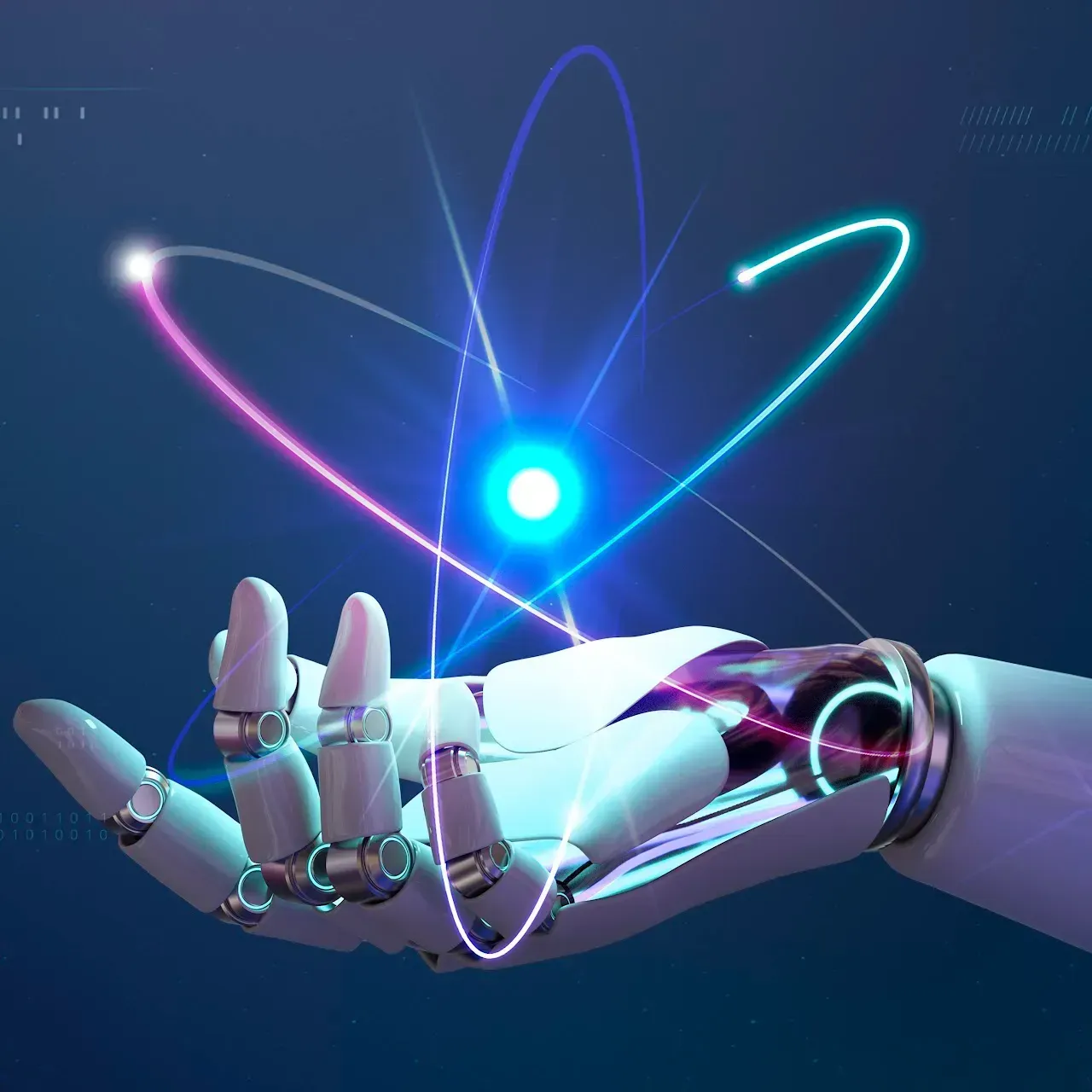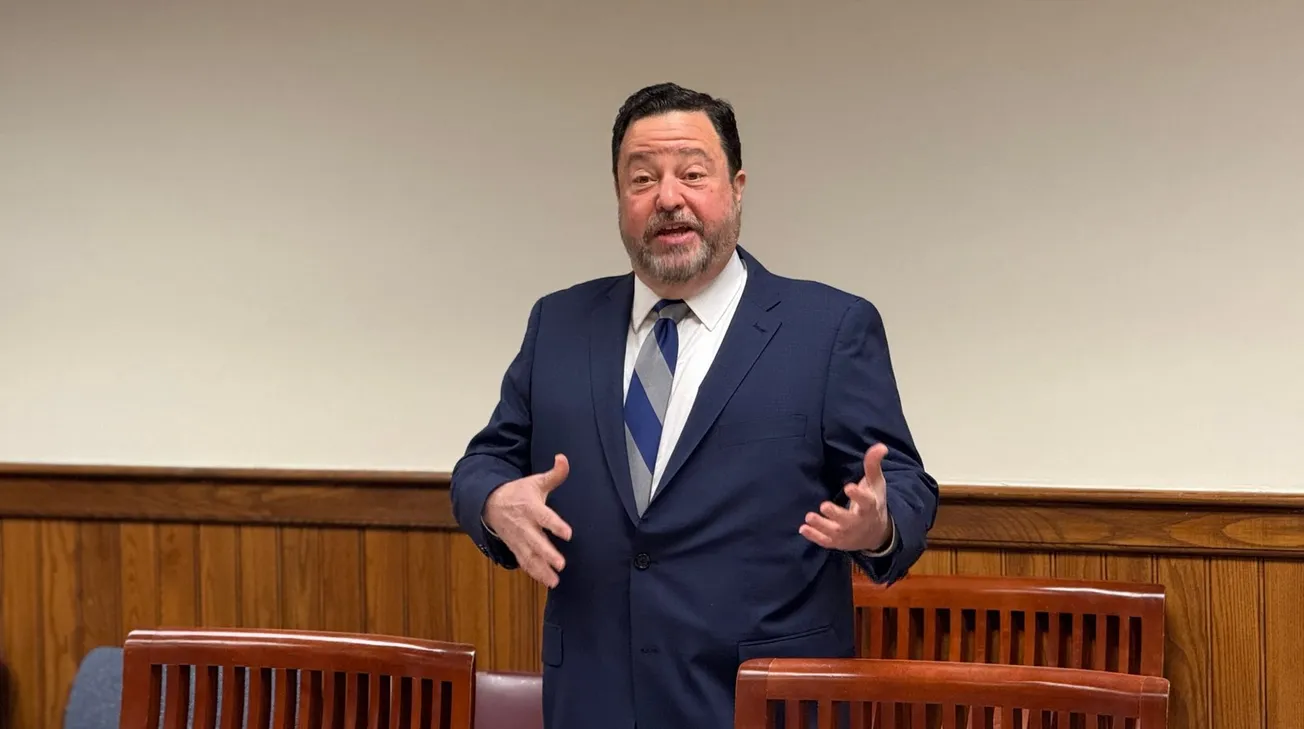Table of Contents
By Ron Latanisian
In September, Michael Garjian spoke about An Alternative to Corporate Capitalism in Managing the Socio-economic Risks of Emerging Technologies and Jagadeesh Moodera spoke about The Evolution of Quantum Computers
An Alternative to Corporate Capitalism
The introduction of any new technology into the marketplace and into our social fabric involves risks. Some risks are technical, some are economic, and others are social. In this new season leadoff meeting of The Wilson Forum, Michael Garjian posited that many of today’s problems are the result of an economic model of corporate capitalism which requires corporations to produce maximum profits and maximum growth for their investors. He spoke about how we might implement an alternative, parallel, voluntary, community controlled, economic model he envisioned and designated as E2M.
The goal of E2M.org is to create a sustainable economic option seeking only adequate profits and sustainable growth for the good of all. By eliminating the element of greed from the economic system, Michael and many others believe we can all create a world where economically powerful communities can invest in people and technologies with the goal of improving the lives of all people. By implementing appropriate controls over technologies to ensure they serve the common good rather than relatively few wealthy elites, we can create a long term, sustainable economic system where communities are more powerful than corporations and people are more valued than profits.
The link to Michael’s book: “Community Capitalism: How Communities Can Use Capitalism to Create a Shared Economy that Works for Everyone”.
In 1964, Michael Garjian left the farm to earn a degree in business management from the University of Massachusetts-Amherst Isenberg School of Management. As a lifelong commercial entrepreneur, social entrepreneur, and author, he holds 11 international patents for alternative lighting systems, electronic power supplies, and atmospheric carbon dioxide removal (CDR) systems. Michael and his wife Irene are the founders of CarbonStar Systems, Inc., a Massachusetts domestic benefit corporation (B-Corp). The E2M Board of Directors embraced the CarbonStar mission to use alternative, clean, renewable fuels to develop a sustainable, off-grid source of electricity, heat, biofuels, and fertilizers to act as the anchor industrial tenant in each E2M Regional Economic Cell. The CarbonStar system entered prototype testing status in 2021, was moved into a large manufacturing facility in 2023, and is now ready for initial production runs. Once complete, the current facility has the infrastructure means to build 100 or more CarbonStar systems annually.
Quantum Computers
The revolution in information storage, communication, and the recent emergence of artificial intelligence (AI) is growing at an unprecedented rate. To keep up with the demands there needs to be extensive technological development, needing a similar revolution in computer processing, nonvolatile (permanent) memory, in-memory computing as in neuromorphic computing, and sensing. While the electron tunneling phenomenon (due to wave nature of electrons) has richly contributed to our understanding of various branches of physics over the years, electron spin (the magnetic part) tunneling has transformed the magnetic storage industry termed as spintronics. Our fundamental curiosity led to the discovery of tunnel magnetoresistance - large electron spin dependent current flow in magnetic tunnel junctions (MTJ, a very sensitive trilayer system consisting of two ultrathin magnetic films separated by a few ‘atomic’ layers of an insulator).
This signaled a transformational breakthrough to computer processing/storage industry and sensor technology. This is evident by the exponential increase in data processing and storage capabilities reaching several trillion bits in a standard computer hard drive costing $100. The super sensitive MTJ sensors are making their ubiquitous presence in all sections of society – from AI controlled automobiles to medical diagnostics (magnetic encephalography) to terrestrial and space exploration. As computing power demands continue to rise, superconducting electronics (SCE) are playing an increasingly important role, essential to progress towards energy-efficient high-end computing and moderate the escalating power consumption by data centers.
Dr. Moodera highlighted his recent work in this direction with a variety of thin film superconducting devices such as nonvolatile superconducting memory elements consisting of a superconductor layer subjected to exchange fields (the magnetic interaction at the atomic level) when sandwiched between two magnetic insulators. Development of these nanoscale devices with rich functionality for seamless on-chip integration would open the world for realizing superconducting quantum and classical computers.
MIT Physicist Dr. Jagadeesh Moodera is a Senior Research Scientist and Group Leader in the Physics Department, Francis Bitter Magnet Lab and the Plasma Science and Fusion Center MIT. He is a Distinguished Visiting Professor, IQC, University of Waterloo; Visiting Professor, Applied Physics Department, Technical University of Eindhoven; Distinguished Institute Professor, IIT Madras; and Distinguished Foreign Scientist at NPL, Delhi. His research interests include manipulating electron spin in solids, ferromagnet/superconductor heterostructure towards superconducting quantum devices and spintronics. Dr. Moodera was Elected Fellow of the American Physical Society, and AAAS. He is the recipient of the IBM, TDK Research Awards, and the Oliver E. Buckley Condensed Matter Prize of American Physical Society.
UPCOMING WILSON FORUM PRESENTATIONS:
On October 10, Edward Robins, aka Stephan Ward, physicist and science fiction writer, will speak about the evolving influence, both useful and not so useful, of AI in our lives with his presentation Tales from the AI Frontier; and
On October 24, October 24, Lefteri Tsoukalas, Professor, School of Nuclear Engineering, Purdue University will speak about work underway to treat spent nuclear fuel as a resource rather than a waste in his presentation Beyond Waste: Spent Nuclear Fuel as the Strategic Energy Reserve of Humanity.
---------------
All Wilson Science & Technology Forum presentations are recorded and can be streamed free on demand at the Wilson Forum’s website, https://jenksst.blogspot.com/
WinCAM broadcasts recordings of Forum presentations at 3 pm on Mondays and Fridays. For the schedule, go to https://wincam.org/schedule/education/ and search for “Wilson.” Likewise, our YouTube channel includes our video presentations: https://www.youtube.com/@wilsonsciencetechnologyfor3746/videos .
----------------
The Wilson Forum’s meetings are via Zoom, at 10:30 am on the second and fourth Fridays of each month, with the exception of July and August.
To learn of upcoming Forum speakers, you can check the Jenks Center’s website https://www.jenkscenter.org/ (events > daytime > Wilson Forum).
Better yet, you can receive advance notification of upcoming talks by emailing a request to be added to the Forum’s roster to rlatanision@alum.mit.edu.









